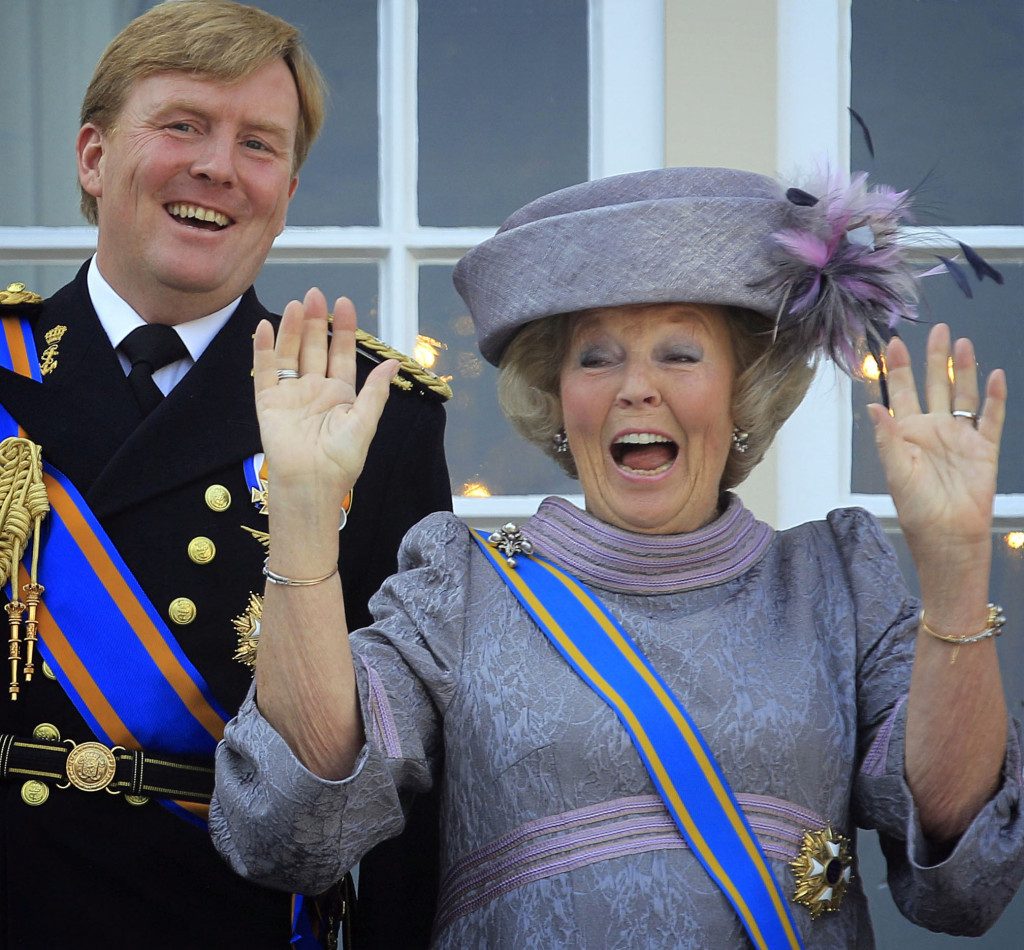
Should others pay attention to Beatrix’s example?
By Eric Wilkins, Staff Writer
Last week, Queen Beatrix of the Netherlands announced that she would be abdicating the throne to her son, Prince Willem-Alexander, as of April 30. By doing so, Beatrix is following in the footsteps of her mother and grandmother, Juliana and Wilhelmina, who also relinquished the title early. And so, at the ripe age of 75, Beatrix is making way for her 45-year-old heir. Is this a poor choice? Or should other monarchs be considering the same?
A king or queen in a constitutional monarchy is essentially just a figurehead; there is very little that they actually have to do. Aside from ceremonially signing off on matters that have already been resolved by others, one could argue that the main purpose of a monarch is to attend social occasions and represent his or her country proudly. How exciting. However, in a world where monarchs have virtually no real power, saying that such figures are merely a unique sort of celebrity would be fairly accurate.
A king and/or queen is a romantic, if antiquated, thought. A fairy tale just isn’t a fairy tale if a princess isn’t kidnapped, an evil queen doesn’t try to kill her stepdaughter, or a wise old king doesn’t rule over Happy Valley. It is perhaps for this reason that people are so attracted to royal families. Gossip magazines are always littered with the latest exploits of Prince Harry or Prince William, or details on how completely drab Charles is. Such mind-numbingly brainless chatter may be annoying, but reading it is how some people relax and take their minds off of things. And therein lies the greatest service a member of the royal family can do in today’s world: provide a distraction, a moment of escape, and some entertainment.
It may seem a bit harsh to relegate such a highly thought of position to as low and common a level as that of a celebrity, but for all intents and purposes, royalty is just that. If one is coming up more often in Hello! Magazine than The Economist, then there really isn’t much more to say.
With that in mind, I completely side with Beatrix in stepping down early from the throne. While her son is certainly no headline grabber, he is a younger, fresher face for the country. At the very least, he helps to provide a revitalized image of the Dutch Royal Family. It makes it easier for the up-and-coming generation to connect with the monarch. Beatrix is like your grandmother: you love her and she’s wonderful, but she’s probably not the first person you want to introduce your new friends to.
Returning to the popular example of England’s monarchy, the British really have the least to gain from having their monarch step down. Yes, Queen Elizabeth II is 86, but Charles is 64 and about as exciting as paint drying on growing grass. Holding onto the thought of royalty just being another source of celebrity gossip, Charles is useless. While it would be an unpopular decision for many, I’m all for having the monarch elected. It’s a popularity contest, after all. Have a vote by the citizens every five years or so to pick the most entertaining of the bunch. It being such a nothing position anyway, why not trivialize it more?
Answering the original question, I do think (the popularity vote being highly unlikely of ever even being a possibility) that monarchs should step down sooner. Since there’s no skill involved for the position, there’s no advantage to having a head as antiquated as the tradition.
